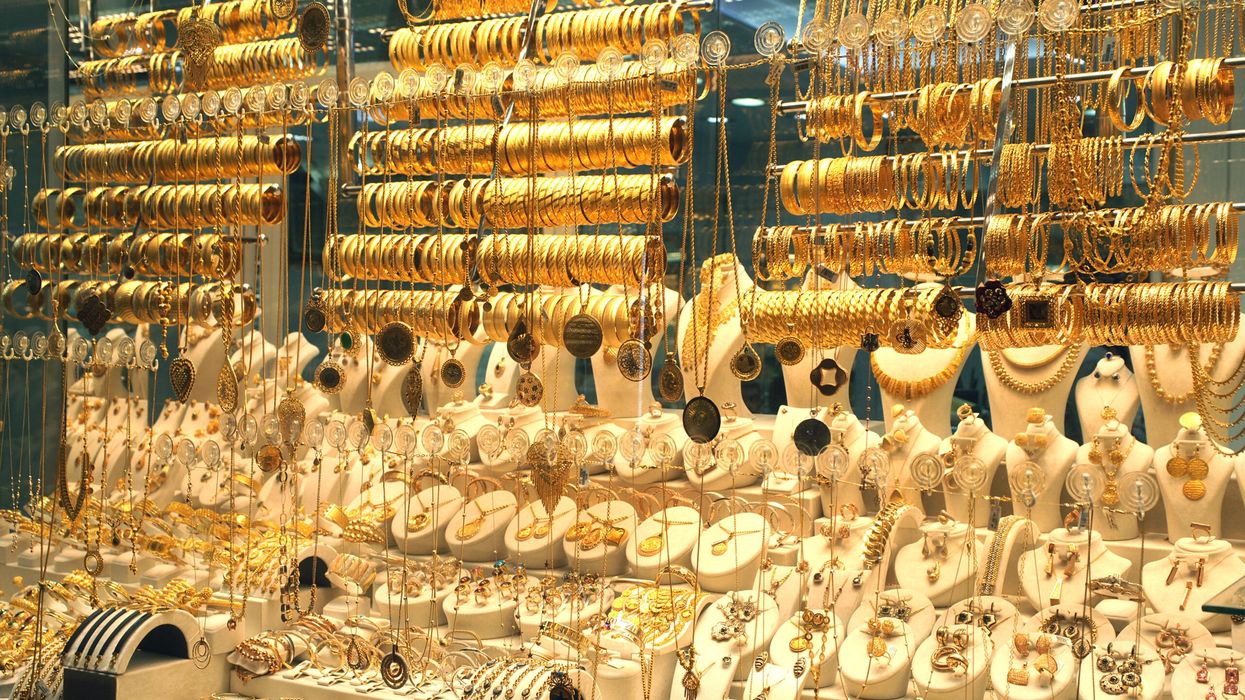Gold prices have dropped sharply by 7 per cent, or ₹5,000 (£46.41) per 10 grams, in local markets following the Indian government’s reduction of the basic customs duty on gold. Experts believe that the lower costs will encourage more people to invest in gold, both as a commodity and a financial asset.
Analysts indicate that the cut in customs duty has made gold imports cheaper, which will help curb the rampant issue of gold smuggling and promote growth in the organised jewellery sector.
"The reduction in basic customs duty makes gold more affordable. While this may initially cause weaker market sentiments due to the sudden change, retail investors will benefit from the more attractive pricing," said Jateen Trivedi, VP research analyst of Commodity and Currency at LKP Securities.
Echoing similar sentiments, Krishnan R-director & CEO of Unimoni Financial Services said lower costs will encourage more people to invest in gold, both as a commodity and as a financial asset, which is often seen as a hedge against inflation and currency devaluation.
Following the Budget announcement by finance minister Nirmala Sitharaman that the government has slashed basic customs duties on gold and silver from 15 per cent to 6 per cent, gold prices crashed by ₹3,350 (£31.10) to ₹72,300 (£671.13) per 10 grams in the national capital on Tuesday (23).
The precious metal prices continued the downtrend and plunged by ₹650 (£6.03) on Wednesday (24). The yellow metal rates saw another steep fall on Thursday (25), nosediving by ₹1,000 (£9.28) to settle at ₹70,650 (£655.81) per 10 grams, as per the All India Sarafa Association.
After the duty cut, the yellow metal has declined ₹5,000 (£46.41) per 10 grams or 7.1 per cent in the past three sessions, since July 23 when it had fallen ₹3,350 (£31.10) to end at ₹72,300 (£671.13) per kg.
Also, gold of 99.5 per cent purity declined by ₹1,000 (£9.28) to ₹70,300 (£652.56) per 10 grams on Thursday. It had also lost ground by ₹5,000 (£46.41) per 10 grams in the three previous sessions.
On Thursday, silver rates also lost ground by ₹3,500 (£32.49) per kg to ₹84,000 (£779.73) per kg. In the past three sessions, the rates of the bright metal fell sharply by ₹7,000 (£64.98) or 8.3 per cent to ₹84,000 (£779.73) per kg from ₹91,000 (£844.71) per kg.
Traders also said that a sharp correction in gold prices have revived the demand for jewellery among consumers as they flocked to jewellery outlets to take advantage of lower prices.
"The reduction in basic custom duties have spurted the demand for jewellery in the domestic markets. Further, this will act as a sales booster for jewellers before the festive seasons, encouraging fresh buying by the consumers due to lower prices," PC Jeweller managing director Balram Garg told PTI.
Low gold prices will help domestic jewellers, particularly the organised ones, Garg said.
According to MP Ahammed, chairman, Malabar Group, the reduction has been a long-standing demand of traders in the gold sector, as it is expected to curb the rampant issue of gold smuggling, which poses a substantial threat to the Indian economy.
"With the new rates, the duty on one kilogram of gold drops from ₹9.82 lakh (£9,115.45) to ₹3.93 lakh (£3,648.04), making smuggling less attractive and more manageable.
"This move will help dismantle the mafia chain involved in smuggling, leading to growth in the organised jewellery sector and increasing government revenue through GST and income tax," Ahammed said.
Meanwhile, in futures trade on the Multi Commodity Exchange (MCX), gold futures have partially recovered after three days of slump on Friday (26). The most traded August contract jumped ₹288 (£2.67) to ₹67,750 (£628.89) per 10 grams on the MCX. It had settled at ₹67,462 (£626.22) per 10 grams in the previous session on Thursday.
However, silver contracts for September delivery continued its downward trend by declining ₹241 (£2.24) to ₹81,090 (£752.72) per kg. It had closed at ₹81,331 (£754.96) per kg in the previous session on Thursday.
As per the market experts, there will be stability in bullion prices once there is clarity on several economic and political factors such as interest rate cut by the US Federal Reserve.
"Stability in gold prices is expected once there is clarity on several economic and political factors including, potential interest rate cuts in the US and India, and the outcome of the US Presidential elections will provide a clear direction for gold prices," Jateen Trivedi said. (PTI)




